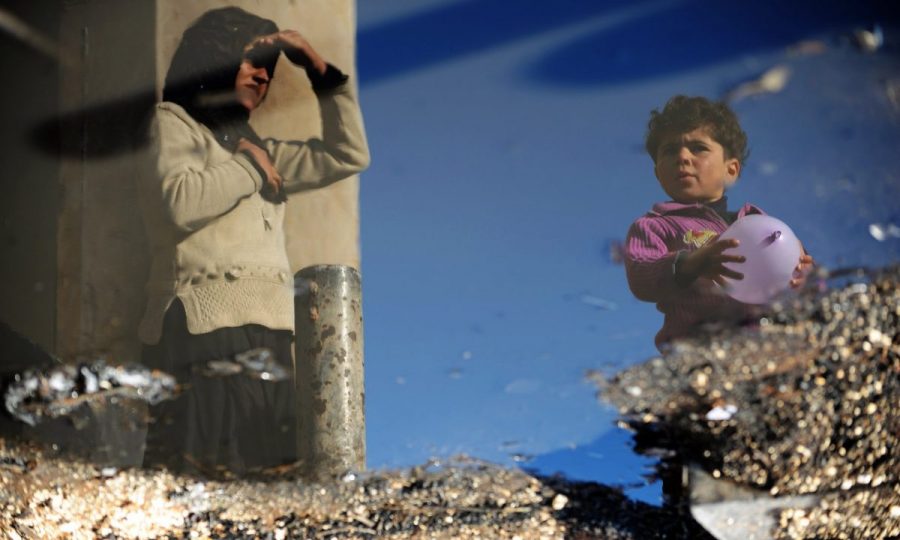“Weather-ready, climate-smart” – this is the theme chosen for World Meteorological Day 2018. If we add the slogan water-wise, we complete the circle of fundamental elements that power sustainable development.
Weather, climate and water are vital to public well-being, health and food security. But they can also be destructive. High-impact events like tropical cyclones, heavy rainfall, heat waves, droughts, winter storms and freezing temperatures have taken lives and livelihoods throughout the ages. But today, climate change is leading to an increase in the intensity and frequency of some of these events.
The start of 2018 has continued where 2017 left off – with extreme weather, which has claimed lives and destroyed livelihoods. The 2017 hurricane season was the costliest ever for the United States – and eradicated decades of developments gains in small islands in the Caribbean such as Dominica. Floods uprooted millions of people on the Asian subcontinent, whilst drought is exacerbating poverty and increasing migration pressures in the Horn of Africa.
It is no surprise that, for the second consecutive year, the environment was by far the greatest concern raised by global leaders in the World Economic Forum’s Global Risks Report. These included extreme weather; biodiversity loss and ecosystem collapse; major natural disasters; man-made environmental disasters; and failure of climate-change mitigation and adaptation. Extreme weather events were seen as the single most prominent risk.

Photograph: Bulent Kilic/AFP/Getty Images
2017 was one of the three warmest years on record, and was the warmest year without an El Niño. Long-term climate change as a result of greenhouse gas emissions commit our planet to a warmer future, with more extreme weather and water shocks.
My wish is that all WMO Members will finally become “weather-ready” and “climate-smart” – and also water-wise. This is necessary to support the international agenda on sustainable development, disaster risk reduction and climate change adaptation.
Specifically, we need to prepare for extreme weather, climate and water through better multi-hazard early warning systems and more coordinated responses. In order to facilitate this, WMO is publishing a multi-hazard early warning systems checklist as an important, practical tool to boost resilience.
National Meteorological and Hydrological Services should be able to provide accurate and timely services for all events from nowcasting to sub-seasonal and seasonal weather and longer-term climate predictions to all – from the individual, to the community, to various business sectors and policy makers – in the most easily understandable language.
The first step in building resilience to extreme weather and climate events is the establishment of a robust network of observations. An extensive observation network – over land, air and sea as well as out of space – is imperative to provide the data to support forecasting and early warnings for extreme weather and climate events. WMO as a community is engaged to help Members who need to upgrade their observation infrastructure, and the development of climate services offers a good opportunity to do so.
Second, society’s resilience to extreme weather and climate events should be developed based on advances in science and technologies for forecasting. The dramatic reduction in the lives lost due to severe weather events in the last thirty years has been largely attributed to the significant increase in accuracy of weather forecasting and warnings and improved coordination with disaster management authorities. Thanks to developments in numerical weather prediction, a 5-day forecast today is as good as a 2-day forecast twenty years ago. And that development is continuing and is supporting early warning.
Indeed early warning is a major element of disaster risk reduction. It can prevent loss of life and reduces the economic and material impacts of hazardous events including disasters.
To be effective, early warning systems need to actively involve the people and communities at risk from a range of hazards, facilitate public education on and awareness of risks, effectively disseminate messages and warnings and ensure there is a constant state of preparedness.
For this reason, WMO has launched an initiative to establish a global and standardized multi-hazard alert system in collaboration with National Meteorological and Hydrological Services worldwide.
We are also actively working with partners in the Climate Risk and Early Warning Systems initiative, as well as the Global Framework for Climate Services, to help the most vulnerable.
Hydrological services are also an important part of the resilience equation. For this reason, WMO is one of the sponsors of a major global water conference in May: Prosperity Through Hydrological Services.
In conclusion, WMO aims to fill the gaps in the observational networks and to break the barriers to the delivery of accurate and timely forecasts and impact-based multi-hazard warning services in all of its Members States and Territories in order to contribute to building a society resilient to weather, climate and water. By doing so, the Organization will contribute to fully implement the United Nations 2030 Agenda for Sustainable Development and the Sendai Framework for Disaster Risk Reduction: We will be building the world we want.
I wish a good World Water Day (22 March) and World Meteorological Day (23 March) to all Members and individuals engaged with WMO, with the hope that all nations will soon become weather-ready, climate-smart and water-wise.

